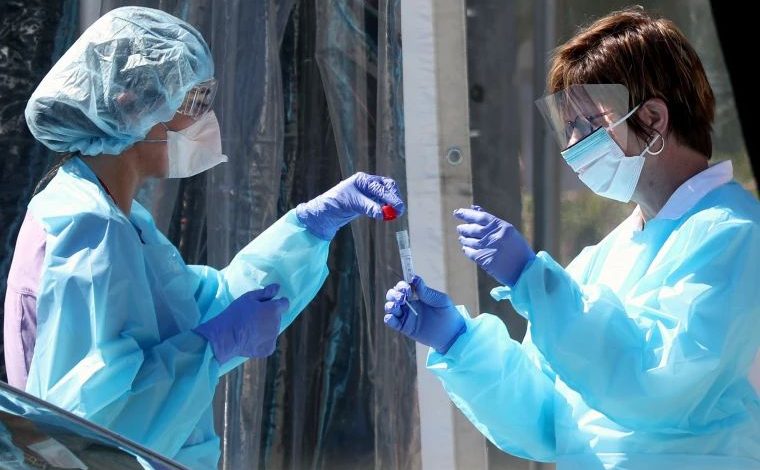
As more people get vaccines, many of us look forward to a brighter future. Some people will still experience the long-term effects, as rapid Covid Test fort Worth has confirmed. More than a year after the outbreak, the scientific community continues to learn more about the long-term effects and problems of COVID-19.
A new study published in Nature shows that people with more severe conditions at the start of their illness are more likely have long-term consequences like heart disease and renal disease.
Worldwide, more than 149 million people have been diagnosed as having COVID-19. Around 10%, or 14.9million people, of those with COVID-19 will be considered “long-haulers.” This refers to those who experience symptoms for more than four weeks. Research shows that only a small percentage of them can be treated with monoclonal antibodies infusions fort worth .
Long COVID-19 Impacts
Some people may develop other illnesses, such as diabetes and heart disease, long after they have received COVID-19. Although the exact cause and relationship between COVID-19’s long-term effects and COVID-19’s origin are still unknown, experts speculate that the virus may have caused inflammation or caused an underlying condition.
According to literature, one is that COVID-19 directly caused these health effects. The other was due to either inflammation from the virus or an immune system reaction to it.
Another possibility is that the patients were just slightly worse than they were before. COVID-19 is a condition that primarily affects the lungs. However, due to the interconnected nature of the body, it is not surprising that there are metabolic, cardiovascular and neurological problems resulting from this illness.
Signs To Keep An Eye On For
Here are some symptoms to be aware of.
- Sweating without apparent reasons
- Feeling of irregular heartbeat exhaustion, which can be felt easily
- Kidney disease
- Urinary need frequently
- It’s a foamy or bloody urine
- Swollen feet and ankles
- Itchy, dry skin
- Obesity and a lack appetite
- Diabetes
- Tingling or numbness in the hands or feet, extreme thirst, persistent fatigue, or severe hunger without cause.
- Excessive urine
Who’s in Danger?
It is not clear at this point whether health professionals will be able to predict who will suffer long-term adverse effects. Some patients may experience short-term adverse effects, even if they have mild illnesses.
Even if your COVID-19 has ended, it is still a good idea to get vaccinated. Even if the virus has become more severe, a vaccine can protect you from getting infected again.
Challenging Symptoms
Post-COVID symptoms can cause symptoms that cannot be diagnosed by testing. Anyone who is eligible can get vaccinated against COVID-19. Keeping up-to-date vaccinations will also help to prevent severe illness. Some people develop additional medical problems after COVID-19 illness. People who are severely ill may experience health problems.
People Are More Prone To Long Covid
COVID-related disorders or long COVID could make some people more vulnerable. Researchers try to identify which populations or individuals are more vulnerable to post-COVID disorders and why. Studies show that certain demographic groups are more susceptible to post-COVID disorders. These are just a few examples, but there could be many more.
- Patients with COVID-19-related illnesses that are more severe, especially those who need hospitalization or specialized treatment.
- Individuals who have underlying medical conditions before COVID-19
- Individuals who did not receive the COVID-19 vaccine.
- Multisystem inflammatory syndrome (MIS), is a condition that occurs when an individual becomes unwell with COVID-19, or very soon thereafter.
Long Covid Risks May Be Affected By Health Inequities
COVID-19 is more common in certain individuals who live or work near a healthcare facility. Due to health disparities, some members of racial and ethnic minorities as well as individuals with disabilities could be more at risk for developing post-COVID issues. Researchers are investigating factors that may make these communities more susceptible to infection and post-COVID disorders.
Preventing long COVID
To avoid complications after COVID, it is important to prevent infection in your own body and in others. Anyone who is eligible can get vaccinated against COVID-19. Keeping up-to-date vaccinations will also help to prevent severe illness.
Research shows that those who have been vaccinated but still get a breakthrough infection are more likely to experience post-COVID symptoms than those who have not. It can be difficult to live with post-COVID symptoms, especially when there are not quick fixes. Many support groups have been formed to benefit both patients and their caregivers.
The Conclusion
A new study has shown that even mild illnesses can have long-term COVID-19 adverse reactions that affect other organs than the lungs. These side effects do not necessarily mean that everyone will experience them.
People with COVID-19 as confirmed by covid-19 can expect to develop heart disease, diabetes and renal disease. Gut says that even though there are still many things to learn about COVID long-term problems, he is confident that we will find more effective strategies and treatments for those suffering from chronic health issues.





